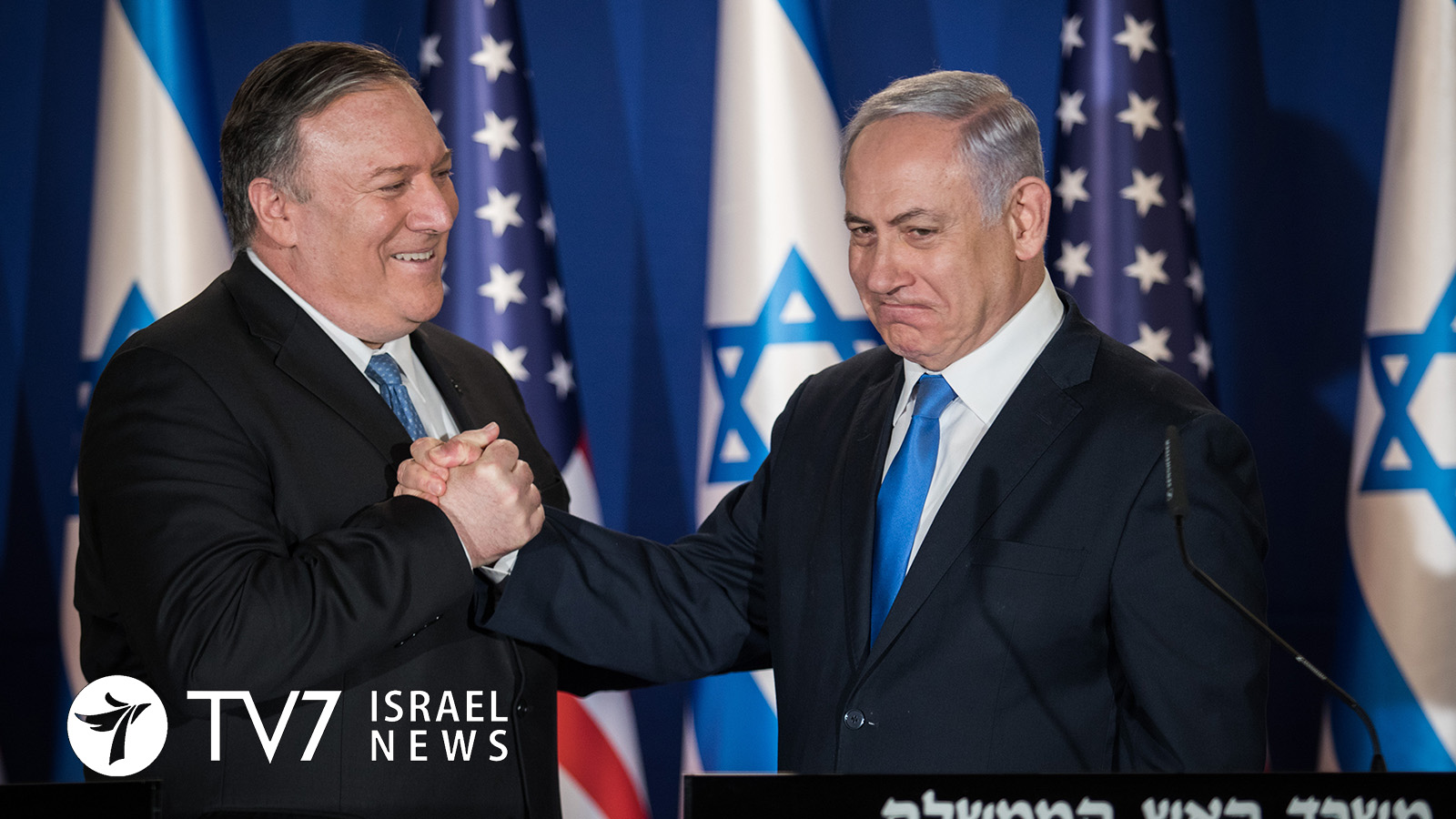U.S. Secretary of State Mike Pompeo is scheduled to arrive in Israel tomorrow 13, May for a series of meetings with Israel’s senior leadership.
According to a statement by his Department, the top American diplomat is set to meet with Prime Minister Benjamin Netanyahu and Parliament Speaker Benny Gantz in the Israeli capital, Jerusalem.
Per the statement, discussions will focus on U.S. and Israeli “efforts to fight the coronavirus pandemic”, as well as “security issues related to Iran’s malign influence.”
As part of the latter security-related topic, TV7 has learned that Secretary Pompeo is also scheduled to meet with Mossad Director Yossi Cohen. The State Department also reiterated that the U.S.’s commitment to Israel has never been stronger than under President Trump’s leadership; while further highlighting that “The United States and Israel will face threats to the security and prosperity of our peoples together.”
It is important to note that the anticipated visit by Secretary Pompeo comes just four days after U.S. Ambassador to Israel David Friedman confirmed that Washington is ready to recognize about 30% of Israel’s aspired annexation of the West Bank.
In an interview published on the Israeli daily Yisrael Hayom over the weekend, the American Ambassador to the Jewish State asserted the need for Jerusalem to negotiate with Ramallah a viable solution that will culminate in the establishment of a Palestinian state on 70% of the West Bank, which include significant portions of the Biblical districts of Judea and Samaria.
Among others, Ambassador Friedman stressed that “Israel has to declare sovereignty,” which will allow the United States to “recognize” its legitimacy. The American diplomat emphasized, however, that the move is subject to the acceptance of additional parameters of the Trump Administration’s “deal of the century,” including a commitment by the Jerusalem’s government to freeze Israeli conduction over half of the West Bank’s territory that is classified as Area C; which under the Oslo Accords of 1994, Israel maintains both security and administrative control.
Meanwhile, Foreign Ministers of EU member states are scheduled to hold a meeting of the European Union’s Council on Friday, during which they are set to discuss a possible response to the potentially imminent Israeli annexation of significant parts of the West Bank.
In a Brussels press-briefing on Monday, the European Union’s external affairs spokesman Peter Stano was asked whether the EU might consider “some kind of sanctions” against Israel in response to any annexation. While Stano urged to refrain from speculation; he replied that the imposition of sanctions “is up to the member states.” Such punitive measures are garnering increased support among EU member states, who aim to deter Israel from following through on annexation. Among those countries are Sweden, Belgium, Luxembourg, Ireland, Spain and France.
